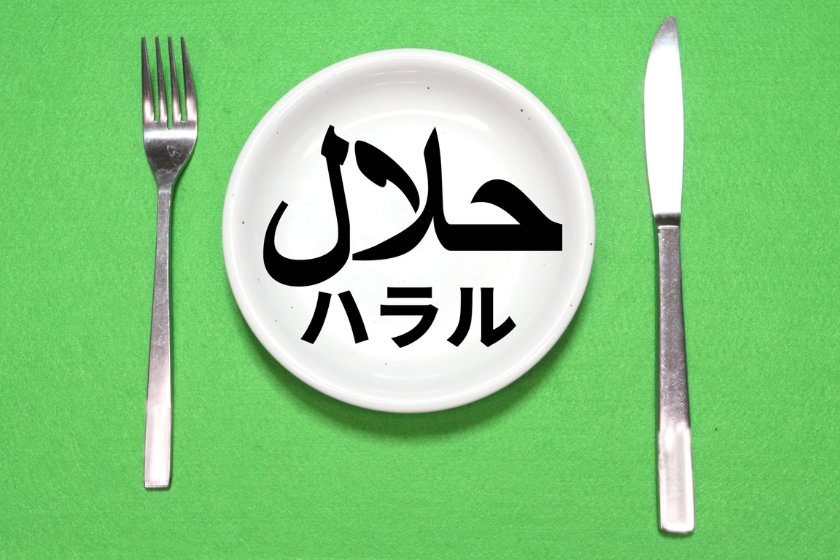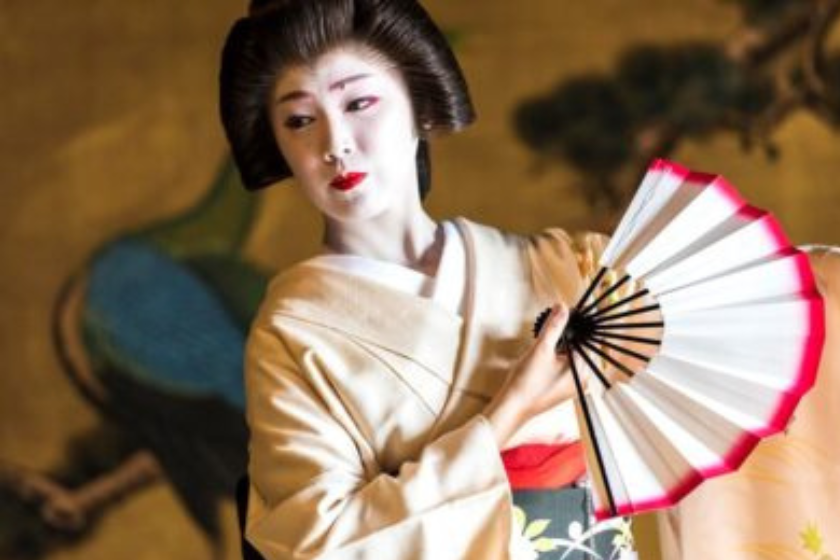

The culture and customs of “entertaining foreigners” vary from country to country.
Knowing the etiquette for the country of origin of the recipient can help you plan your reception in a more personalized manner.
This article introduces country-specific hospitality etiquette and Japanese cultural experiences appropriate for country-specific entertainment.
We will introduce business manners and Japanese cultural experiences that will delight you in 11 countries: China, Korea, Taiwan, USA, France, Australia, UAE, Saudi Arabia, Singapore, India, and Indonesia.
Please take a look at it for reference.
Manners and customs to be aware of, by country

Here is an introduction to the manners and customs of different countries.
There are religious and cultural differences between Asian, Western, Arab, and other countries, and even foreigners in general have completely different manners and customs in different countries.
It is also important to understand that even within the same culture, there are surprisingly different values and customs.
a fine thing to say (used as part of a sarcastic response to a rude remark)

Greetings are given in every country and culture in the world, but the gestures and manner of greeting differ from country to country.
In some countries, it is considered good manners to shake hands firmly and firmly, while in others it is considered good manners to shake hands slowly and gently.
However, what they all have in common is that they look you in the eye and greet you firmly.
First impressions are very important, so we want to make sure our greetings are clear.
Religion and Work
It is said that many Japanese are non-religious, but even today, national holidays such as New Year’s, Obon, and festivals are based on culture and history.
Similarly, it is important to know the culture of your business partner’s country, as many people spend their private time abroad during national holidays or consecutive holidays depending on the country.
Although Greater China is our neighbor, New Year’s Day is on the lunar calendar, and the consecutive holidays differ in timing from the Japanese New Year’s holiday, with a major holiday weekend beginning in February.
In the West, where there are many Christians, the Christmas season vacation is important, so do not impose the busyness of the Japanese Shijo season.
Also, in Arab and Southeast Asian countries with large Muslim populations, it is important to proceed with communication while respecting the other party’s religion because of the important Ramadan season.
Thus, it is important to know your partner’s religion, as the balance between religion and work is also very important.
Each national character

National character” may not be strictly inherited by all people, but there are certain characteristics that depend on the environment and culture in which one was brought up, depending on the country.
Rather than details, there are scenes in which the characteristics of each country are more pronounced, such as the sense of time and the way of expressing gratitude.
It is important to know the national character of a country, because even a vague knowledge of it can help prevent problems in advance and give you an idea of how to deal with others.
For example, Australians do not have a boss-subordinate relationship and call each other by first names, while Indonesians only report to their superiors with good news, making the position so important.
In Saudi Arabia, it is considered impolite to give a casual souvenir, but in Greater China, it is common practice to give souvenirs.
This is a minor detail, but it is important to know in advance because customs and national character differ from country to country.
Characteristics of Business Manners by Country

While differences in manners and customs are important, knowing business etiquette is very important when working with foreign companies.
Here are some of the unique business manners of each country and what you need to know about business etiquette by country.
exchange of business cards

In most countries, business cards are very important greeting items.
It is said that rules for exchanging business cards as detailed as those in Japan are rare, but other countries also have their own manners in exchanging business cards.
All countries have one thing in common: don’t put it away right away, but take your time to see it.
And they are seen to treat them with respect.
It is especially important to treat them politely, and we want to take care of them because it goes beyond national characteristics and shows our humanity.
Thus, business cards are an important business tool in every country.
sense of time
The sense of time is a prominent national characteristic.
In some countries, punctuality is the norm, while in others, a meeting is just a guide and it is considered rude to be on time.
However, it is important to note that some countries are well protected in the business world even if there are loose aspects in the national character.
It is important to check the response process even if it is quick, as it is said that speed tends to be more important than confirmation of mistakes in Singapore.
Many people in Indonesia have difficulty saying no, so it is important to repeatedly ask for confirmation if the response is questionable.
In some countries, delivery time is considered as a guideline for the time being, so confirmation of time is recommended to avoid problems.
attire

In international business situations, a suit is the proper business attire, but in some countries, a rough fashion may not be considered rude.
On the contrary, in the UAE and Saudi Arabia, national dress is the formal attire and is often worn by the other party.
Many Muslim women, in particular, work with their heads covered with cloth.
There is no particular way to dress for the other person, but it is important to dress appropriately for the job, and in many Asian countries, a clean first impression is important.
Country-specific hospitality notes

There are also differences in attitudes toward hospitality among countries.
Even when entertaining foreigners, it is important to know that the manner of eating and drinking differs considerably depending on the country of the recipient.
Business Entertainment and Business Etiquette
Some countries do not entertain themselves, while in others, entertainment is more important than anything else in building trust.
It is very important to know in advance what kind of business entertainment customs the other country has.
Religion and Diet

There are many different religions in the world with dietary restrictions.
Here we have made a list of what not to eat according to religion.
Buddhism
Meat and fish are prohibited for authentic Buddhists.
In addition, we do not use strong five pungent (five pungent roots) or five pungent (five pungent roots) ingredients.
Five garlic and five garlic and five garlic and five garlic and five garlic and five garlic and five garlic and five garlic and five garlic and five garlic and five garlic and five garlic and five garlic and five garlic and onions and onions and onions and leeks and chives and rakkyo are generally forbidden.
Hinduism
Eating cows is prohibited.
It is a religion with such strong food moderation that most people can be considered vegetarian.
Islam
Muslims are basically not allowed to eat anything other than halal food.
Pork is contraindicated, and only properly processed halal food may be eaten, including poultry and beef.
Christianity
It is safe to assume that there are no specific dietary restrictions, although some denominations (e.g., Mormon, Seventh-day Adventist Church) have restrictions.
Judaism
The meal is made of kosher food, which is a food that can be eaten by Jews.
It can only eat creatures that do not ruminate with their hoof split in two.
Pigs cannot be eaten.
Be careful with sushi items and rare steaks, as marine organisms without scales (octopus, shrimp, etc.) and blood are contraindicated.
Regarding Gifts

For Japanese people for whom it is customary to bring a gift, it is somewhat disconcerting not to have a gift for the first greeting.
However, in some countries, it is very rude to give excessive souvenirs or gifts of any kind at the first meeting.
If you really want to give them something, we recommend that you tell them that you have brought a souvenir, which is a custom in Japan, and that you have brought it in the Japanese way.
Also, in such cases, do not add words such as “It’s a trifle” or “It’s a small thing,” as the concept of modesty is not understood in most countries.
Why would they bother to give me something so boring? They seriously wonder….
alcohol

In many Asian countries, alcohol is very important for entertainment.
In China and Korea in particular, drinking and entertaining are inseparable, and so the manner of drinking is also an important entertainment skill.
On the contrary, alcohol is taboo in Muslim countries, so it is considered rude to prepare alcohol for entertainment.
It is important to know in advance the different manners of drinking and entertaining in each country.
Below is a summary of the characteristics of greetings by country.
China
Very important.
Try to accept alcoholic beverages, especially those recommended by superiors.
Korea
Drinking and entertaining are inseparable in Korea.
Also pace yourself so you don’t drink too much and get crushed.
Taiwan
Taiwan also values alcoholic beverages, but if there are circumstances that prevent you from drinking, let them know from the beginning so that they will not be rude.
America
France
The host is asked to have a good sense of coupling food and alcohol rather than just drinking alcohol.
If you are not confident, we recommend holding down a restaurant with a sommelier.
Australia
Since there is no such thing as business entertainment in this country, there is no need to plan a forced dinner reception, but rather to plan it as if you want to enjoy the drinks themselves together.
Coffee breaks are preferred over alcohol.
UAE
Since it is a Muslim country, alcohol is basically prohibited.
We refrain from preparing alcoholic beverages even for dinner entertainment.
Be sure to arrange soda water or apple juice for the toast.
Saudi Arabia
Guests from the Kingdom of Saudi Zarabia, a strictly Muslim country, should never be served alcohol.
It is very rude and discredited.
Be sure to have non-alcoholic beverages for the toast.
Singapore
With a large number of Malay Singaporeans and Muslim Singaporeans, Singapore is also a partner country where consideration for alcohol is very important.
There are also many restrictions on food, so care should be taken when dining together.
India
Since the majority of Indians are Hindu, for whom alcohol is one of the five deadly sins, drinking is legal.
On top of that, 20% are Muslim, so it is safe to assume that most Indians do not drink alcohol.
Indonesia
Indonesians are also a country with many Muslims.
Check your partner’s religion before deciding whether or not to have alcohol.
It is said that it is difficult for people to say NO, so we refrain from forcing them to drink too much.
Recommended Japanese cultural experiences by country

Here are our recommendations for Japanese cultural experiences in 11 different countries.
We have selected Japanese cultural experiences that will be appreciated by the national character of the country and people from countries where alcohol is not available.
Please also read the detailed related articles for each country.
Recommended Related Articles; Japanese cultural experiences popular among foreigners! Recommended 12 Experiential Sightseeing & VIP Entertainment
Japanese cultural experiences for entertaining Chinese guests
We recommend the following for a Japanese cultural experience appropriate for planning entertainment for Chinese people, for whom hierarchical relationships are strict and entertainment is very important.
geisha
Kabuki
Kimono Experience
Ninja
The Chinese value face very highly.
Since it is important to make a good face when entertaining, it is highly recommended to have a geisha, a professional in the art of entertaining, at your dinner.
They are not only skilled entertainers, but also performers of traditional Japanese dance, which makes the drinking atmosphere more relaxed.
There is something very luxurious and special about viewing Kabuki in a private space.
The glamour that Kabuki has to offer is also to the liking of the Chinese, so this will be a very pleasing project.
Popular among VIPs and wealthy Chinese women are more luxurious kimono experiences than ordinary kimonos, such as the Ooku style and oiran (courtesan).
Many people love photography, so this will be a recommended project as well.
A more detailed article on Chinese hospitality can be found here.
Mastering Chinese Guest Reception: Key Points and Essential Etiquette to Avoid Faux Pas!
Japanese cultural experiences for entertaining Koreans
One thing to keep in mind when entertaining Koreans is the history of Japan and Korea.
Although there have been many pro-Japanese Koreans in recent years, it is important to note that some older Koreans have an aversion to Japanese culture itself.
Calligraphy performance
Japanese Whiskey
Hot Springs
Tourist information
For entertaining Koreans, we recommend a Japanese cultural experience that allows you to experience together a common culture within each other’s country.
Calligraphy and hot springs are found in both Japan and Korea, so there is a sense of familiarity.
Calligraphy performances can be an appropriate Japanese cultural experience for celebrations, receptions, and other glamorous occasions.
It will be more exciting if you collaborate with Japanese musical instruments.
Japanese whiskey is relatively new to Japanese culture.
Therefore, it is perfect for entertaining Koreans, as older people can experience it without any discomfort.
Take your time and relax at the authentic bar.
Sightseeing in Tokyo is also becoming increasingly popular among Koreans.
It is also a good way to deepen friendship as you walk around and sympathize with the similarities and complete differences between Japan and Korea.
Here is an article about Korean hospitality.
Korean Business Manners and Popular Entertainment Methods to Avoid Failure in Entertaining Koreans
Please take a look at it for reference.
Japanese cultural experiences for entertaining Taiwanese
For Taiwanese, who are among the most pro-Japanese people in Asia, we still recommend the following Japanese cultural experiences that allow you to experience Japaneseness.
geisha
Ninja
Tea ceremony
Kabuki
match that determines if a rikishi will have more wins than losses
Sake Brewery Tour
For Taiwanese who take courtesy and manners very seriously, we recommend geisha, who are professionals in hospitality and Japanese cultural traditions.
Geishas are also popular in Taiwan, and in recent years, they have become the object of female admiration.
Taiwanese people are said to be very jovial, so a fun ninja experience is also recommended.
Ninjas can be entertaining, and we can offer interesting projects for you to experience ninjas in workshops.
Projects with sake as a keyword will be a lot of fun, and the sumo workshops will delight you with their friendly atmosphere.
Please refer to the detailed article about Taiwanese hospitality here.
What is the point of Taiwanese hospitality? Understanding Culture and Manners
Japanese cultural experiences for entertaining Americans
Entertainment is also provided in the U.S. In addition to dinners and lunches, sports entertainment and theater entertainment are popular.
Here is a list of entertainment that Americans will enjoy.
Zen Experience
Kabuki Entertainment
Martial Arts Entertainment
Sake and Japanese Whiskey
Yakatabune Dinner
Kado Team Building
Tea ceremony
Sushi Workshop
For entertaining Americans, who are becoming more diet-restricted and health-conscious, we recommend planning a wellness experience that is uniquely Japanese.
Zen experiences and nature-inspired houseboats are also popular.
Many people are also interested in team building through flower arrangement and tea ceremonies, so planning training and get-togethers is also popular.
Japanese sake, whiskey, and other Japanese alcoholic beverages will also be appreciated as a theme for your entertainment.
Here is a helpful article for American entertainment that you can read in detail here.
Japanese cultural experiences for entertaining Australians
However, there are times when you have to entertain Australians who have come to Japan.
In such cases, we recommend the following Japanese cultural experiences.
Tokyo Travel Guide
Japanese Dance Experience
Sushi Workshop
Ninja Entertainment
Sake Brewery Experience
Team Building in Japanese Culture
In Australia, there are very few companies that provide entertainment because they don’t and it doesn’t fall under expenses.
Therefore, it is necessary to plan for the guests to enjoy being in Japan rather than preparing a reception dinner and drinks.
If you can take them sightseeing in Tokyo with you, and if they actually learn something or experience something, it is very natural because it is more about deepening friendship than entertainment.
Also, when companies are visiting Japan in large groups, celebrations and get-togethers are fine, but team building with the keyword “Japanese cultural experience” is also popular because of its special feel.
A more detailed article on Australian hospitality can be found here.
No Hosting in Australia? Business Etiquette and Dining Manners to Watch Out For!
Japanese cultural experiences for entertaining French guests
The following list of Japanese cultural experiences are recommended for entertaining French people who value tradition, history and culture.
Tea ceremony
Martial Arts
Calligraphy
Toshi Sake and Sushi
Kodo
Noh, Kyogen, Kabuki
For entertaining French people, many of whom are interested in Japanese culture, we highly recommend a Japanese cultural experience that allows you to experience Japanese traditions and culture.
Many people tend to have a strong respect for history and admiration for Japanese culture, so they will be very pleased if you guide them through a Japanese cultural experience when entertaining them.
For entertaining French people, we highly recommend planning a unique Japanese experience that you can take the time to enjoy.
A more detailed article on French hospitality can be found here.
Hosting the French: Mastering Business Etiquette and Customs for Successful Hospitality!
Japanese cultural experiences for entertaining UAE (Dubai and Abu Dhabi) nationals
It is difficult to prepare entertainment that tends to rely on alcohol and meals for those who have restrictions due to their religion.
The following Japanese cultural experiences are recommended, especially for guests from the UAE, where lavish entertainment is the norm.
Tea ceremony experience
Kabuki Experience
Incense Practice
Halal Food Kaiseki Cuisine
For guests from Arab countries, whose culture is to entertain guests with Arabic coffee brewed by the host, we still recommend the Japanese way of entertaining with tea.
If you entertain your guests with a “Japanese tea ceremony” experience in a tea room or at a Japanese confectionery workshop, you will be able to show your respect for them.
Also, since many people enjoy a good fragrance, an incense experience is recommended for those who enjoy fragrance.
The use of expensive fragrant wood is a very luxurious experience, and viewing Kabuki in a special private space is an extravagant treat.
The Japanese cultural experience of hospitality can provide you with a special experience and time, so that your business entertainment, which tends to rely on drinks and food, can be delivered as a more luxurious experience than that.
A more detailed article about the hospitality of UAE nationals can be found here.
Abu Dhabi, Dubai] How to successfully entertain important UAE clients in Japan
Japanese Cultural Experience for Entertaining Saudi Arabian Royalty
In the Kingdom of Saudi Arabia, a strictly Muslim country, restrictions that have been relaxed little by little by Saudi Vision still remain strict.
The following four Japanese cultural experiences are recommended for Saudis.
Flower arrangement
Halal Food Kaiseki Cuisine
Calligraphy Experience
Tea ceremony
In a country where the four seasons are different from those of Japan, many people in Saudi Arabia are said to admire the rich nature of Japan.
The flower arrangement experience is a great way to experience Japanese culture while experiencing Japanese flowers.
Muslims also have a culture of beautiful calligraphy and tend to be interested in the Japanese calligraphy experience.
The culture of entertaining guests with Arabic coffee makes it easy to convey the spirit of the tea ceremony.
A detailed article on Saudi basics for entertaining Saudis can be found here.
Hosting Saudi Guests | Essential Business Etiquette and Hospitality Tips for Valued Clients
Japanese cultural experiences for entertaining Singaporeans
Entertaining Singaporeans, many of whom are Muslim Malays, requires consideration of alcoholic beverages and food.
So if you prepare a Japanese cultural experience for your entertainment, we can guide you to a fulfilling time.
geisha belonging to a call-office (usually a skilled geisha)
Kabuki
Martial Arts
Yakatabune
Tea ceremony
Traditional Japanese dance is very popular among Singaporeans.
While most people tend to be accustomed to being entertained by women, the entertainment provided by geisha is top-notch, making them popular with VIPs and wealthy customers.
Also popular are those that offer a special and luxurious experience, such as kabuki viewing in a private space or a dinner on a yakatabune (houseboat).
Also, for Singaporeans for whom sports entertainment is popular, a Japanese martial arts experience is recommended.
It is recommended for those who want to enjoy physical exercise and friendship rather than food and drinks.
A more detailed article on Singaporean hospitality can be found here.
Hosting Singaporeans: Essential Business Etiquette and Cultural Norms to Know
Japanese Cultural Experience for Indian Entertainment
In India, where there are many different religions, many people have dietary restrictions.
So, we need to be very careful because there is also the entertainment of dinners and the drinking of alcohol.
Since it is often difficult to obtain information on the food habits of the recipient in advance, we recommend planning a Japanese cultural experience for the reception.
Below is a list of Japanese cultural experiences that Indians will appreciate.
Kimono experience, tea ceremony, flower arrangement
Kabuki Experience
Wagashi Workshop
Ninja Experience
Geisha Experience
Many Indian women routinely wear their national dress, the sari, in a nice way.
Therefore, many people are interested in the ethnic costumes of other countries, and the kimono experience is very much appreciated.
For those who cannot eat alcohol or animal products, we also recommend a tea ceremony experience or a Japanese confectionery workshop.
Wagashi is popular among Indians, many of whom have a sweet tooth.
Here is an article with some useful recommendations for Indian hospitality.
Hosting Indian Guests: Key Business Etiquette and Cherished Japanese Cultural Experiences
Japanese cultural experiences for entertaining Indonesians
When entertaining Indonesians, who have a very strict hierarchical relationship, it is very important to set up the reception in a way that is not rude.
Here we introduce a Japanese cultural experience perfect for entertaining Indonesians.
geisha
Tea ceremony and Japanese sweets experience
Yakatabune
Cherry blossom viewing
Ninja
The geisha’s attention to detail and hospitality skills allow them to smoothly facilitate the reception of important guests from Indonesia, where hierarchical relationships are strictly regulated.
Among the Muslim customs is the hospitality of the host serving coffee directly to the guest.
It is a way of hospitality very similar to the tea ceremony, so it is very easy for Indonesians to understand the meaning of welcoming people at a tea ceremony.
For Indonesians who deepen their friendship through picnics, we also recommend outdoor entertainment unique to Japan, such as houseboats and hanami (cherry blossom viewing).
The article on business etiquette and Indonesian culture required for entertaining Indonesians can be found here.
Please take a look at it for reference.
Indonesian Hospitality and Business Manners|How to entertain successfully
summary
Foreigners, in a word, have completely different cultures and manners from one country to another.
If you are only broadly categorized as a foreigner, you will not be able to welcome them with the kind of hospitality they deserve.
Just as different cultures and values may not see the same thing in the same way, it will be important to adapt the form of hospitality to the culture and customs of the recipient.
If you are going to entertain a foreigner, please do some research on the country you are going to visit in advance.
This way, you can plan a more pleasing and successful reception.

After graduating from university, I worked as a Systems Engineer (SE) at Reuters Japan. Later, I spent five years as a Systems Manager at Reuters Singapore. After that, I studied business administration at a business school in the Netherlands and joined Hitachi Ltd. At Hitachi, I was responsible for new business development, promoting new projects in China and investment schemes in emerging countries. After working for 11 years, I started running Motenas Japan, offering Japanese cultural experiences to foreigners under the motto “Bringing Japan and the world closer together.”


